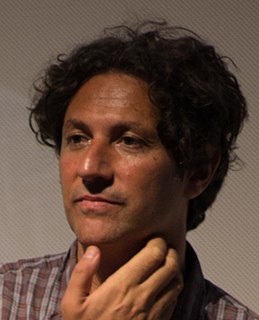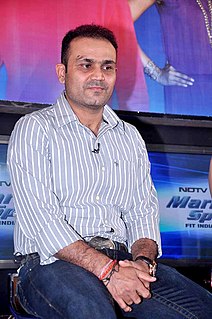A Quote by Catherynne M. Valente
I wouldn't even consider it if I were you. But then if I were you, I would not be me, and if I were not me, I would not be able to advise you, and if I were unable to advise you, you'd do as you like, so you might as well do as you like and have done with it.
Related Quotes
For a while, I was feeling like I was always playing characters that weren't specifically Korean or specifically Asian, even - that they were characters who were originally written white, and then they would cast me. And I used to consider that a badge of honor because that meant I had avoided stereotypes.
I'm 9, 10, and I'm watching the Apollo astronauts go to the moon. We're sitting on the floor of a school, and they have this... huge TV, and I'm looking at that, and I'm thinking 'Me, I would like to do that.' But it didn't dawn on me then that they were American; I was Canadian. They were men; I was a girl. They were test pilots, military folks.
In the earliest years of the AIDS crisis, there were many gay men who were unable to come out about the fact that their lovers were ill, A, and then dead, B. They were unable to get access to the hospital to see their lover, unable to call their parents and say, 'I have just lost the love of my life.'
I do remember, one time, a man came to me after the students began to work in Mississippi and he said the white people were getting tired and they were getting tense and anything might happen. Well, I asked him "how long he thinks we had been getting tired"? I have been tired for 46 years and my parents was tired before me and their parents were tired, and I have always wanted to do something that would help some of the things I would see going on among Negroes that I didn't like and I don't like now.
If men were equally at risk from this condition - if they knew their bellies might swell as if they were suffering from end-stage cirrhosis, that they would have to go nearly a year without a stiff drink, a cigarette, or even an aspirin, that they would be subject to fainting spells and unable to fight their way onto commuter trains - then I am sure that pregnancy would be classified as a sexually transmitted disease and abortions would be no more controversial than emergency appendectomies.
Even then, more than a year earlier, there were neurons in her head, not far from her ears, that were being strangled to death, too quietly for her to hear them. Some would argue that things were going so insiduously wrong that the neurons themselves initiated events that would lead to their own destruction. Whether it was molecular murder or cellular suicide, they were unable to warn her of what was happening before they died.
If you say, "Would there were no wine" because of the drunkards, then you must say, going on by degrees, "Would there were no steel," because of the murderers, "Would there were no night," because of the thieves, "Would there were no light," because of the informers, and "Would there were no women," because of adultery.
The years of the Great Depression were a superb time for economists because people not knowing what could be done or what should be done would always assume that maybe an economist had the answer. If you were just a lawyer in Washington, you were nobody. But if you were an economist, you might have the answer.
I think that's always been part of the thinking behind the script, that - and I really tried really hard to impress that upon the staff of the show, the animation staff - to try to get them to understand that we would only be able to get away with what we were writing if the visuals were appealing enough that it was like a balance, and even people who didn't like what they were hearing would still not want to turn away because what they were seeing was so nice. So that was kind of my hunch, and I think it worked.
When I faced the likes of Shoaib Akhtar and Brett Lee for the first time, I had a little bit of fear in my mind. My thoughts were, 'Would I be able to face them? Would I be able to play them? Would I be able to hit boundaries?' There were so many questions and fear, also, that if the ball didn't hit my bat, it might hit me on the body.
Charles Burchfield would look at what you were working on and not say anything for several minutes. Then he would very sensitively respond - "Well, have you thought about?" or "Might you consider?" I respected that so much because I thought he was so sensitive to my work, and didn't want to offend me, but in the right way to encourage me.






































